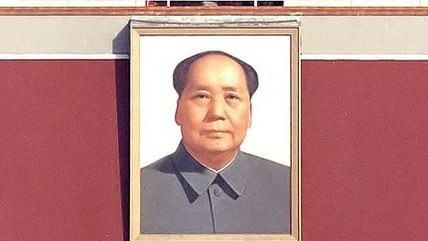Paging Thomas Friedman: Chinese Impressed Americans Actually Debate Budget Policy


Authority-envying American pundits may yearn for the firm certainty of China's one-party rule, but those subject to that system seem impressed by the chaotic debate characterizing politics in the United States. Thomas Friedman (in)famously commented in the New York Times that one-party rule can "have great advantages," but regular Chinese citizens now take to the Internet to remark on how fascinating it is to see American politicians vigorously debating borrowing, spending and taxes, and the extent to which the country does not shutdown just because the federal government (sort of) closes for business.
In 2009, politburo devotee Thomas Friedman penned these words:
One-party autocracy certainly has its drawbacks. But when it is led by a reasonably enlightened group of people, as China is today, it can also have great advantages. That one party can just impose the politically difficult but critically important policies needed to move a society forward in the 21st century. It is not an accident that China is committed to overtaking us in electric cars, solar power, energy efficiency, batteries, nuclear power and wind power. China's leaders understand that in a world of exploding populations and rising emerging-market middle classes, demand for clean power and energy efficiency is going to soar. Beijing wants to make sure that it owns that industry and is ordering the policies to do that, including boosting gasoline prices, from the top down.
Flash forward four years, and CNBC quotes everyday Chinese taking to the Internet to marvel at peaceful debate, discussion of policy alternatives, and a country not crippled because its political functionaries are at loggerheads:
"The government's closed — is this bad?" wrote Chen Zhiwu, a user on China's Twitter-like Sina Weibo. "In the American system, arguments among Republicans and Democrats and the president are normal and should happen because levying taxes, incurring debts, and paying expenses involves the taxpayer's interests and their money. So, elected representatives and the president should not treat these things lightly. To take these matters seriously is their responsibility and duty."
Other posters point to state and local governments' ability to function in the absence of federal direction, and the fact that normal life continues for most people. They also point to the corruption inherent in one-party autocracy, which is inseparably linked to the lack of ability to challenge tax and spending decisions.
Of course, Americans are a bit too vulnerable to federal action in many areas, and not necessarily by choice. Craft beer brewers have been hung up by requirements that they wait on the whims of regulators. The feds also have the ability to deliberately inflict pain by closing private businesses, cutting off access to parks and otherwise inconveniencing people for no reason other than to prod people into wishing for the return of their federal overlords. But that's an argument for more of the "local autonomy" (and personal autonomy) that astonishes Chinese observers, not for more of the autocracy that so charms those enamored of centralized power.


Show Comments (80)